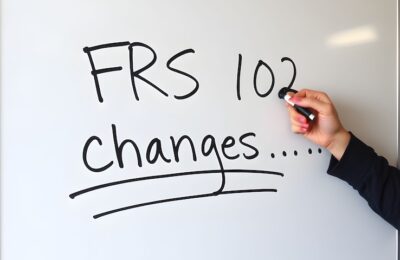
Budget vs actual: turning your management accounts into decisions
Posted by Kirsty Demeza on January 22, 2026Budget vs actual analysis helps turn management accounts into action. We show you how to spot overspends before they hurt cash flow.

FRS 102 changes: what the new lease and revenue rules mean
Posted by Andy Green on January 20, 2026Major FRS 102 changes regarding leases and revenue apply for accounting periods beginning on or after 1st January 2026. We explain how.

Mandatory payrolling of benefits: are you ready for April 2027?
Posted by Kirsty Demeza on January 19, 2026Mandatory payrolling of benefits is coming. From April 2027, most benefits in kind will be reported through payroll (RTI) – we examine how.

The tax late submission penalties system explained
Posted by Karen Jones on January 16, 2026Did you know about HMRC’s tax late submission penalties? We explain how the points-based system works.

Selling in 2030? How to increase business value in 5 years
Posted by Andy Green on January 15, 2026Thinking of selling your business? Our guide show you how to plan ahead and how to increase your business value in five years.

Claim Child Benefit online – online service
Posted by Jon Pryse-Jones on January 15, 2026You can now claim Child Benefit Online – replacing the paper-based system in place since 1977.

Online sales tax rules – do you trade on ebay?
Posted by Mark Ingle on January 14, 2026Online sales tax rules changed on 1st January 2024 – digital platforms now have to share detailed user and sales information with HMRC. Do you trade on ebay?

Overdrawn director’s loan account: tax traps and how to fix them
Posted by Mark Ingle on January 13, 2026Worried about an overdrawn director’s loan account? Learn how to avoid the 33.75% S455 tax charge and clear your balance tax-efficiently.

How to finance your business venture – 5 ways to help you
Posted by Mark Boulter on January 13, 2026Financing your business venture can be challenging. Here are five top ways to help you on your way to getting your venture off the ground.

Motivate your team – 10 effective ways
Posted by Jon Pryse-Jones on January 12, 2026Motivate your team and enjoy rapid success in business. You will need to learn to motivate if it is to achieve great things.





